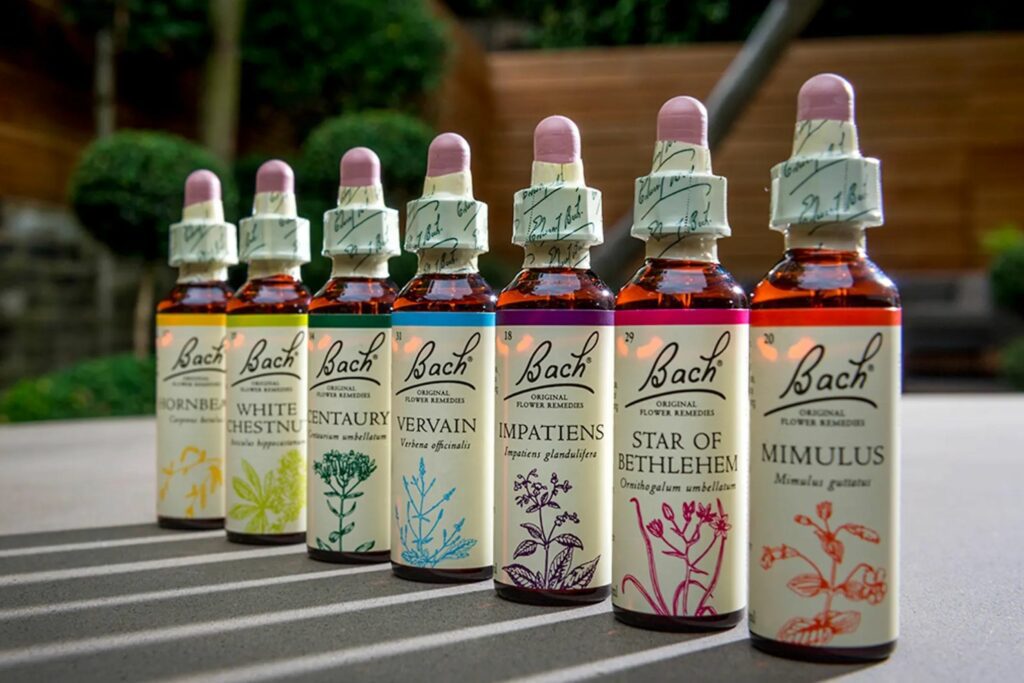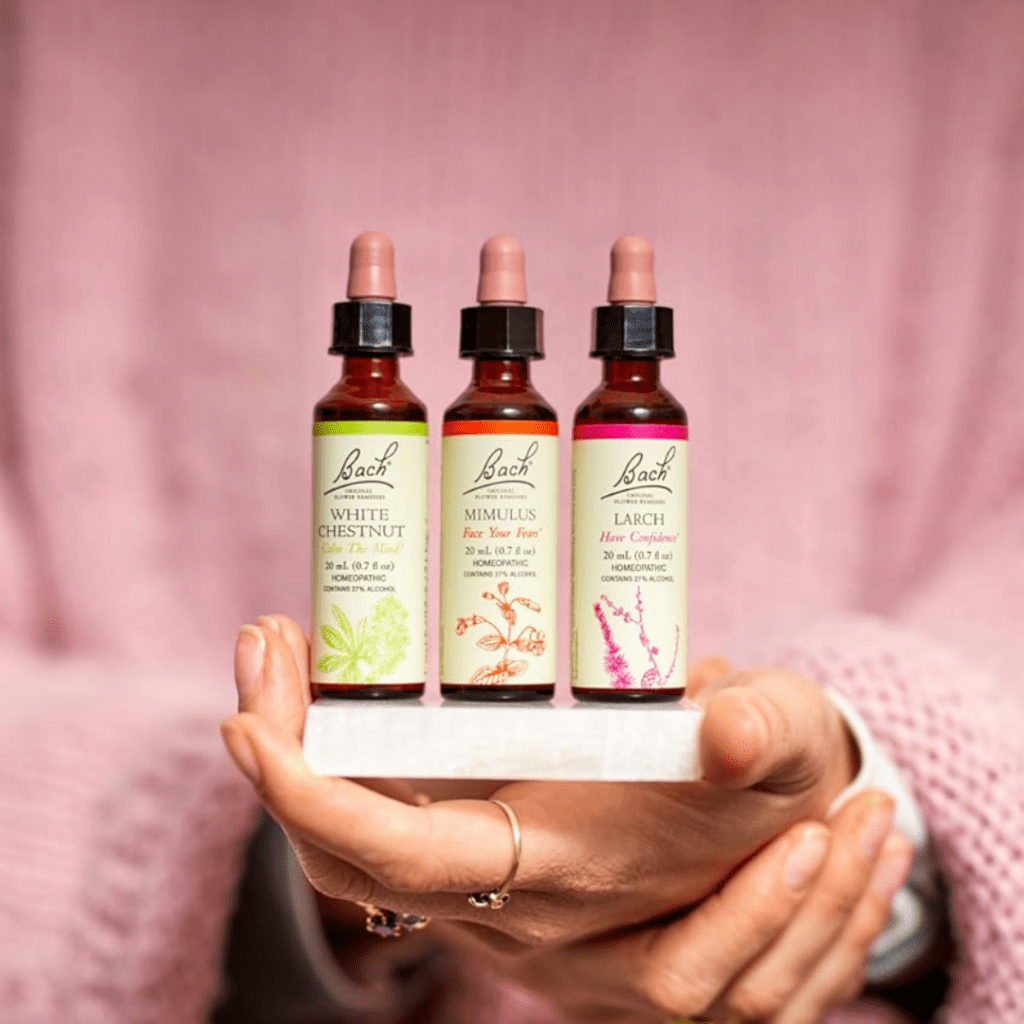
Flower essences provide a natural path to emotional balance, empowering you to find harmony and inner calm through the healing power of nature.
Flower essences, also known as flower remedies, were first discovered in the 1930s by Dr. Edward Bach, a physician and homeopath who devoted his life to exploring the use of flowers and plants to create a simple, natural and gentle approach to emotional balance.
Flower essences are natural extracts from wild plants and flowers preserved in brandy. Dr. Bach discovered that flowers hold vibrational healing properties that can positively impact emotional health and stability. They work by helping to balance negative emotions—such as anxiety, fear, uncertainty, and worry—that may disrupt inner harmony. Flower remedies support a stable, peaceful state of mind and help restore balance to the body’s energy system.
Each flower remedy is designed to address different emotional states. For example, there’s a remedy called “Mimulus” that helps you overcome your fears, “White Chestnut” for unwanted and repetitive thoughts that intrude into the mind and stop us concentrating, and “Rock Rose,” helpful in times of crisis, particularly if you suffer from panic attacks or extreme anxiety.

Integrating Bach Flower Remedies into Your Healing Journey
Bach flower remedies can be incorporated with traditional psychotherapy approaches to provide an additional dimension to the healing process, fostering a holistic transformation that encompasses both the mind and the spirit.
One of the beautiful aspects of Bach Flower Essences is that they can be a gentle yet potent ally in promoting emotional resilience—whether you’re facing stress, grief, or self-doubt. These remedies are not a replacement for therapy, but rather a gentle complement to your healing journey. Together, we’ll explore which essences may be most beneficial for you, creating a personalized plan to complement our work and facilitate emotional healing.
If you’re curious about how Bach Flower remedies can help you, you can schedule a free 20-minute consultation. Remember, this could be a valuable resource in our toolkit. I’m here to support you holistically, and Bach Flower Essences might be the key to unlocking a deeper level of emotional well-being.
Treat the cause not the effect
Edward Bach
How to use Flower Remedies?
Single Remedy
- Take 2 individual drops under the tongue or as directed by a healthcare practitioner.
- Add 2 drops of Bach flower remedy to your water bottle, sip throughout the day
- May add to your favourite beverage, herbal tea, juice, smoothies and more
Remedy Blend
Fill a clean 30mL bottle ¾ full of spring water, add 2 drops per remedy (or as recommended by your healthcare practitioner)- up to 7 remedies per blend. Take 4 drops of blend, 4 times a day. A teaspoon of cider vinegar or brandy may be added to the essence as a preservative.
In your Bath or Diffuser
You may also add a few drops to your bath or add it to a spritzer bottle or diffuser.
Flower remedies are available at Bach® Original Flower Remedies .
Remember, if you are pregnant or breastfeeding, consult your doctor before use.
All Bach® Original Flower Remedies contain alcohol as a preservative and therefore may be unsuitable for some people.
Popular Essences
- Larch for Confidence. Be confident in your abilities; feel a sense of determination with a balanced sense of self-esteem.
- White Chestnut for Tranquility. Don’t let those repetitive thoughts get in the way. The positive potential of White Chestnut is peace of mind.
- Wild Oat to decide Your Path. Be clear and feel confident about what you want, especially when facing a crossroads in life.
- Hornbeam for procrastination. Shake off that ‘Monday morning feeling’. This essence helps you be certain in your strength and ability to face the day ahead, with energy and a clear head.
- Pine for forgiveness & self worth. This essence can bring forth the expression of inner forgiveness, self-worth and strength.
Stay tuned for future blogs on additional Bach Flower uses!
